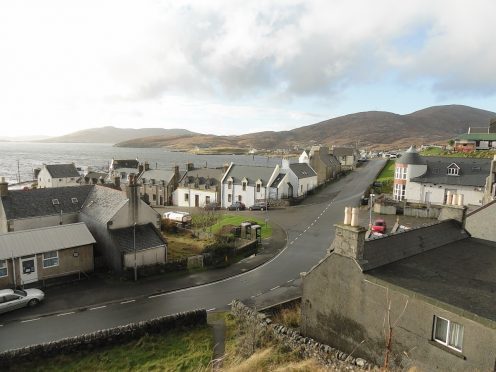North councils are facing a demographic “ticking time bomb” that could accelerate cuts and make vital services unsustainable within a few years, according to a new report.
The perfect storm of already-stretched local authority budgets, depopulation in remote areas, a growing elderly population and Brexit has been laid bare in a stark analysis by the Accounts Commission watchdog.
And last night it sparked fresh calls for an overhaul of the way rural councils are funded.
Official forecasts show that the number of people living in the Western Isles could drop by 14% over the next two decades, while the Outer Hebrides could also be hit by a 28% fall in the number of children – the largest decreases in Scotland.
Argyll and Bute is also predicted to lose 8% of its population by 2039, the third highest reduction in the country.
As a result, both local authorities would witness their budgets shrink further because funding is based on population, but demand for services would continue to increase at the same time as their remaining residents are getting older.
Highland, Moray and Orkney are among seven other areas where the population will rise, but the growth is expected to be made-up entirely of older people, putting additional strain on social care services.
Aberdeenshire is expected to have had the third highest population growth in Scotland by 2039, increasing by 20%, with Aberdeen City due to rise by 17%.
Much of the increase would again be among pensioners, particularly in Aberdeenshire.
Across Scotland the population is predicted to grow slightly but the increase would be entirely as a result inward migration, as deaths will outnumber births in each year.
However, the Accounts Commission suggested there could be “significant and profound implications” for councils from Brexit, if restrictions on inward migration exacerbates the population trends further and if nearly £1billion in EU funding for Scottish council schemes is not replaced.
The warning was issued against a backdrop of many councils already struggling to balance the books after suffering a real-terms fall in revenue funding of 9.6% since 2010/11.
Western Isles, Argyll and Bute, Highland, Moray, Shetland and Orkney are all expected to witness a decline in the number of young people in the area, as well as rises in those above pensionable age, of up to 33% in the case of Moray.
The report said the fall in the child population will mean councils will “have to manage their school property estate and teacher-pupil ratios” and that “this will be particularly challenging for Western Isles Council and other island and rural councils”.
It added: “The implications for councils with a decreasing population include: fewer people to pay council tax, a lack of local workforce which may make the area less attractive to businesses, and low population figures making some local services harder to sustain.”
With the Scottish Government’s council funding formula largely based on population, the Accounts Commission reiterated its call for a review to ensure it “remains fit for purpose in a changing landscape for local government”.
Last night, a Moray Council spokesman said: “We have known for some time that Moray is facing a ticking time bomb in terms of its increasing ageing population and the demands that will place on our care services.
“This report sets out in stark detail how much of a challenge that will present to our operations.”
Western Isles Council leader Roddie Mackay said the authority had always been “a leading player in developments and improvements” in local government, such as the Our Islands Our Future campaign.
He added: “One of the reasons for this innovative and leading approach has been because of the very real challenges that the Islands face in terms of depopulation and a demographic imbalance combined with an ever tightening financial climate.
“Nevertheless the Comhairle (council) continues with its primary purpose of delivering high quality services to our communities.
“However, we cannot go on facing reductions in funding including the largest per capita reduction in recent years and as well as working hard with Scottish Government to demonstrate why we should get a fairer annual settlement, we have embarked on a programme of transformational change which is examining how we can do things more efficiently across all our services.”
